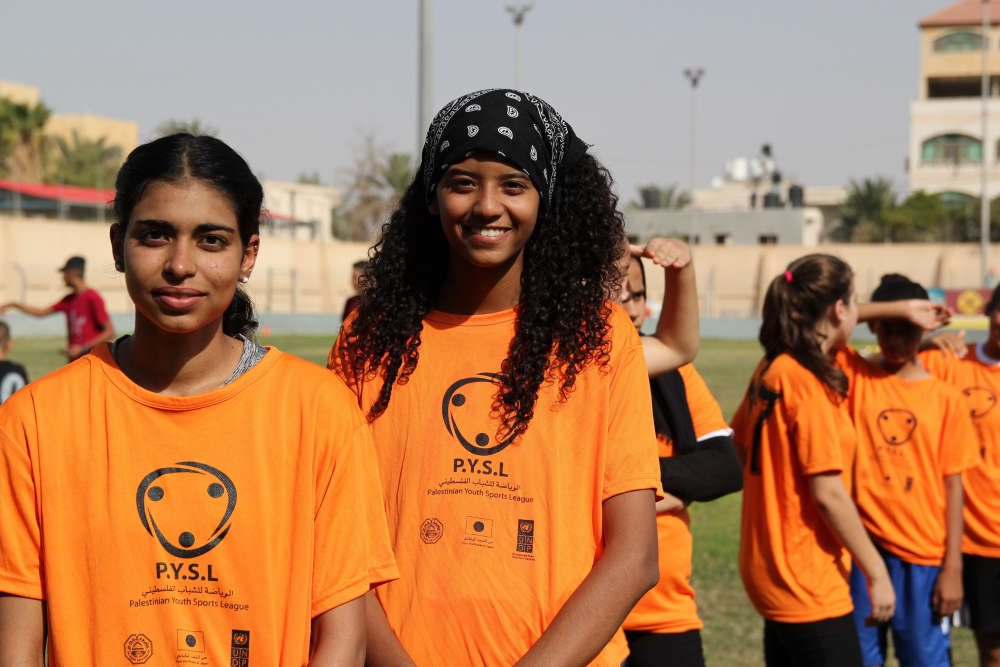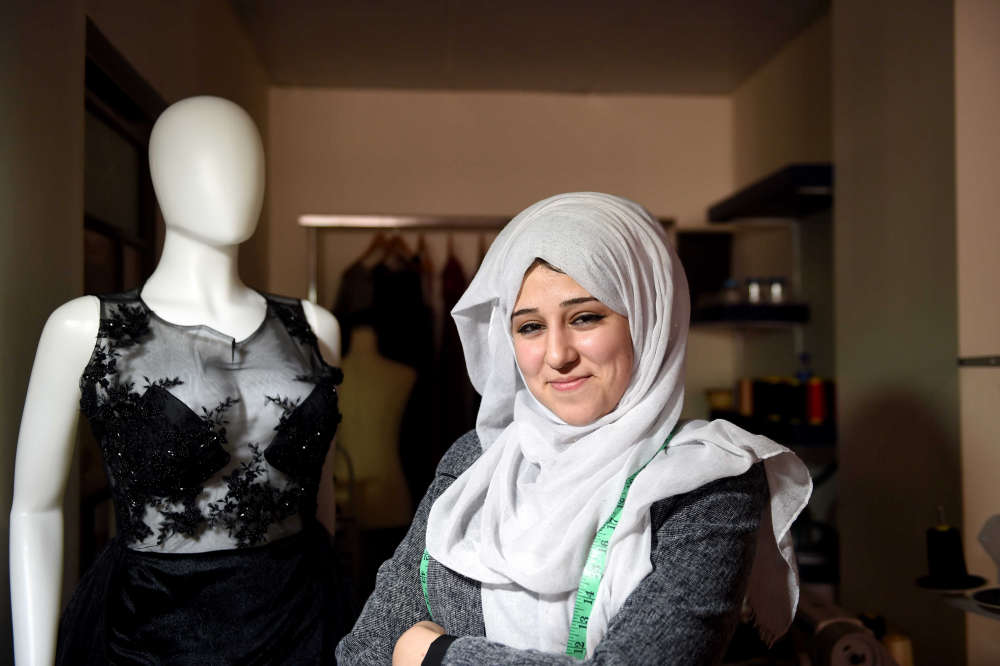Courtesy of United Nations Development Programme Programme of Assistance to the Palestinian People (UNDP/PAPP)
Under a protracted crisis, the Palestinian economy is constrained in much the same way as the Palestinian people. A quarter of Palestinians live in poverty, with that rising to almost 40 percent in Gaza. As of November 2017, approximately 23,500 people in Gaza still remain displaced from the 2014 hostilities. Around 1.65 million Palestinians are food insecure. Roughly a staggering 2.5 million people throughout the occupied Palestinian territory will need some form of humanitarian assistance in 2018.
The Palestinian economy is subject to repeated shocks and dependent on donor aid, and livelihood opportunities are worryingly limited. This has led to poor economic performance, limited potential for trade, lack of sectoral diversity, dwindling productive sectors, and an excess of graduates to be absorbed into the current labor force.

© UNDP/PAPP – Nadine Abu Rmeileh
The latest labor force statistics demonstrate overall unemployment of 29 percent in the third quarter of 2017, reaching 46.6 percent in the Gaza Strip and 19 percent in the West Bank. Youth are the most adversely affected, with youth unemployment rates reaching as high as 46.9 percent among youth aged 20−24 years.
With a growing youth demographic − already one-third of the population − high unemployment and low labor participation, especially for women, young people can be seen as both a demographic threat and an opportunity. According to UNFPA’s Palestine 2030 study, the Palestinian population will increase by a million by 2030 and more than double by 2050. This is a daunting prospect since an increasing youth population could be seen as an additional stress on an already underdeveloped infrastructure and social services, or it could be seen as a real opportunity for socio-economic and political growth, through targeted and adequate investments in youth development and empowerment.
If measures are not taken to accommodate the new entrants to the labor force over the next 15 years, a socio-economically disastrous scenario could unfold. However, if investments in Palestinian youth are properly deployed, real and sustainable socio-economic development would be the result. Without the full participation of young women and men, the Palestinian state cannot reach its full economic potential.
The culture of dependence that has been fostered by a lack of economic self-sufficiency must be replaced by a “culture of enterprise and self-reliance.” Youth must be instilled with the skills and knowledge, but more importantly, the confidence and motivation to develop their own enterprises and craft their own future. This will alter social perspectives from seeing youth as a burden to be managed, to recognizing them as the real engine of socio-economic growth. This shift in perspective will also encourage more youth to enter non-traditional industries and will help both young women and men establish enterprises or find jobs in areas that are otherwise considered inaccessible to them.

The Palestinian government, private and public institutions, should dismantle access barriers that limit youth employment and entrepreneurship. This includes improving access to finance and support services that aid the establishment of a business or decide on a career path. Private and public economic investment must also be directed to the high-return and under-served sectors, which can help foster sustainable economic growth. This can include focus on the productive sectors, including agriculture and manufacturing, creating jobs that will benefit the growing youth population. In tandem, the digital economy provides new frontiers for investment in areas that can create a critical mass of youth employment. Employers must be encouraged to take a gender- and youth-sensitive approach to hiring young people, and especially young women.
With the 2030 Agenda as a guiding thread, UNDP works with sister agencies and national and international development partners to advance young people’s participation in civic and political life, their economic empowerment and their role as peace- and resilience-builders.

UNDP’s programming aimed at economically empowering young Palestinians is anchored on five key pillars to reduce barriers to employment and entrepreneurship. These include business development services, placement and employment, micro and group financing, education and skill development, and finally social services, such as scholarships for demand-driven education and training, affordable housing for low-income households, accessible healthcare, and cultural support. Through these five pillars of youth economic empowerment, UNDP helps young women and men to break down barriers to the labor market. Young people are skilled to fill the gaps in the labor market; connections are created between youth and the private sector; and a holistic approach ensures that the most vulnerable are targeted at all times.

programme, funded by the Islamic Development Bank, which is based on building the capacities of youth in the areas of
administration, finance, and project management and technical skills, and linking them with the industrial job market.
© UNDP/PAPP – Shareef Sarhan
Investment in youth’s employability and entrepreneurial innovation could be the genesis of effective, sustainable, and inclusive economic growth. By investing in this otherwise marginalized subset of the population, young people can be mobilized to activate an economically sustainable, democratic, socially active, and forward-thinking Palestinian society.

